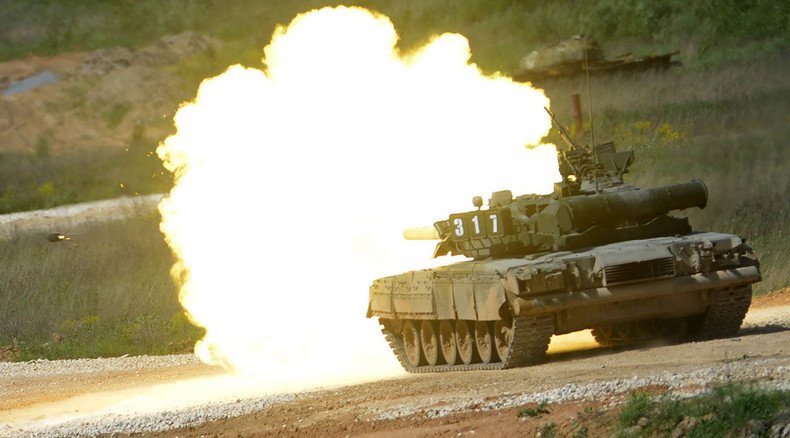UK, US should garrison troops in Eastern Europe to deter Russia – think tank

Russia isn’t scared of the UK and US because Western troops aren’t garrisoned in neighboring Eastern European states, a fact which Britain must assert itself militarily to overcome, according to a new report by the neoconservative Henry Jackson Society.
The report titled ‘After Crimea: Towards a new British Geostrategy for Eastern Europe?’ was published on Tuesday and focuses on how Britain should respond to the perceived Russian threat.
Timed for release one year after the NATO summit held in Wales, and shortly before the UK government’s Strategic Defence and Security Review (SDSR), the report argues that, “For the first time in over two decades the UK faces, in Russia, a serious state-based competitor on the European continent.”
The report comes to a number of key conclusions about frictions between Russia and the West, claiming that while Russia may not be carrying out a “neo-imperial” project it presents a serious threat. It also claims the lack of permanent UK and US military garrisons in the east has made Russia feel confident.
The report says Britain should plan in case it must relinquish global interests in favor of a relatively local confrontation with Russia.
“Rather than trying to shy away from mainland Europe, the United Kingdom needs to re-assert the European dimension of its global policy more forcefully,” co-authors James Rogers and Andra-Lucia Martinescu argue.
“Europe is the centerpiece of Britain’s wider defense system, and Eastern Europe, being the most exposed to Russia’s aggressive foreign policy, matters most.”
Rogers and Martinescu also emphasize Britain’s central role in NATO and what they see as its commitment to the rights of weaker nations.
“Long a strong supporter of smaller nations’ right to self-determination, as well as NATO, the UK must ensure the ‘assurance measures’ adopted by the Alliance are sufficient to deter Russian provocation.
“The Baltic States have asked NATO for the installation of permanent garrisons on their territory: as the most militarily powerful European country, the UK has a responsibility, both to its allies and to itself, to respond appropriately,” they say.
Raised tensions between the West and Russia have led to a series of massive military exercises along the borders of European states, a situation which some claim carries its own dangers.
On August 12, the European Leadership Network (ELN) think-tank published a report titled ‘Preparing for the Worst: Are Russian and NATO Military Exercises Making War in Europe more Likely?’ in which the dangers of military escalation are assessed.
The investigation of two training deployments – one NATO and one Russian – found that “both exercises show that each side is training with the other side’s capabilities and most likely war plans in mind.”
It also argued that while spokespeople on both sides “may maintain that these operations are targeted against hypothetical opponents, the nature and scale of them indicate otherwise: Russia is preparing for a conflict with NATO, and NATO is preparing for a possible confrontation with Russia.”
The report recommended that both sides increase communication with regards to the scheduling of exercises and urged “politicians on both sides [to] examine the benefits and dangers of intensified exercising in the border areas.”
In January, world-renowned academic and linguist Noam Chomsky told RT the world was being plunged back into a Cold War deadlock accompanied the same nuclear risks as the original confrontation.
“The worst-case scenario, of course, would be a nuclear war, which would be terrible. Both states that initiate it will be wiped out by the consequences. That’s the worst-case. And it’s come ominously close several times in the past, dramatically close. And it could happen again, but not planned, but just by the accidental interactions that take place – that has almost happened,” Chomsky told RT’s Sophie Shevardnadze.












